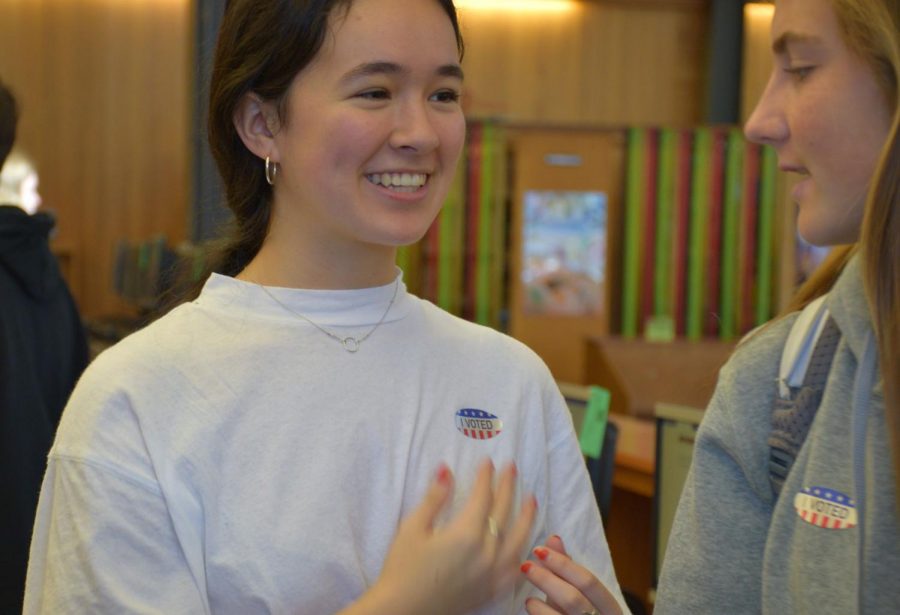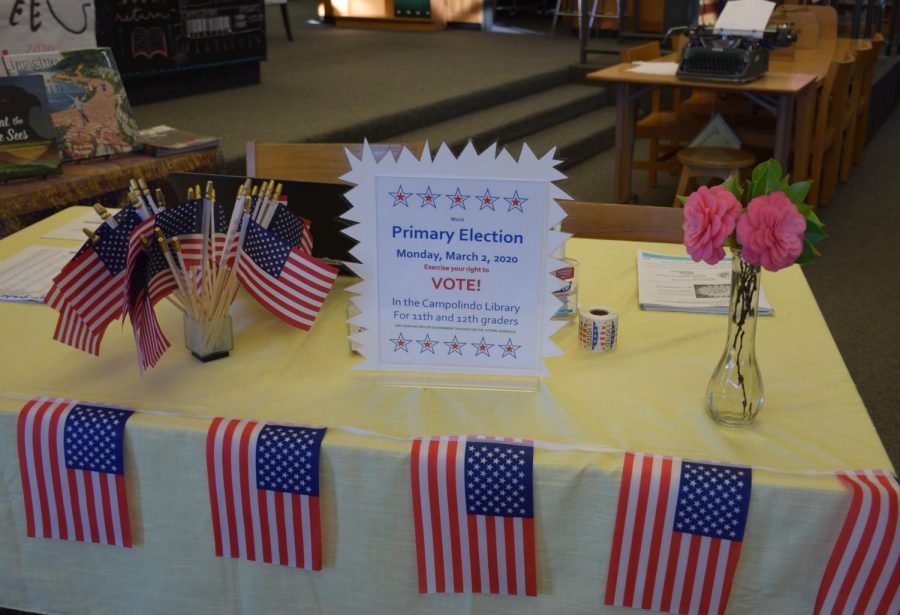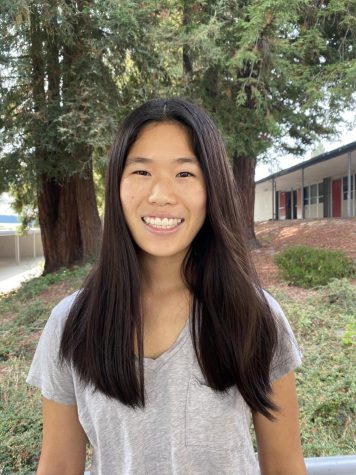Election Hack Hands Trump 2nd Term
March 6, 2020
Results from the mock election hosted in the library on Friday, March 2nd in advance of the California “super Tuesday” primary, were deemed inaccurate as the result of an apparent hack.
During social studies classes, students visited the library to vote for the President, United States Representative, State Assembly Member, State Senator, and Contra Costa County Superior Court Judge, as well as local measures, like Measure M, Measure J, and Prop 13.
The originally published winners were Donald Trump, Mark DeSaulnier, Rebecca Bauer-Kahan, Steve Glazer, and Susanne Fenstermacher, respectively, and all 3 measures passed.
However, according to an email statement from librarian Sarah Morgan, who planned the event, the “digital ‘ballot box’ was stuffed with about 180 extra and improper ballots at the end of the day [on March 2.] This caused the votes for Trump to soar from approximately 18% to 37% in 1 hour.”
The perpetrators have yet to be identified.
The corrected results showed that Democrats received 65.6% of the votes (Bernie Sanders and Joe Biden received 25% and 23.9% of ballots, respectively), and Republicans received 19% of the votes (18.9% went to Donald Trump). Thus, Campolindo students would have elected Bernie Sanders rather than Donald Trump for president.
Morgan, who began planning the event 2 weeks ago, said, “This is such a big primary election this year, and there’s so many people on the ballot, and so many of our kids are turning 18. Anyways, it’s just a really important year for us in our elections, especially because it’s a presidential election.”
According to the United States Census Bureau, young people ages 18 to 29 are consistently the age group with the lowest voting turnout. In 2016, less than 50% of this group cast a ballot.
“I just think that kids need to practice doing this, and it’s just a good opportunity to practice. Also, it gets them more aware of how democracy works, how voting works, so that when they go vote in real life, which a lot of our seniors will do this year, they’ll be confident,” Morgan said.
“I think that it’s part of your responsibility as an American citizen to do your civic duty and vote,” said senior Mock Trial president Nina Naffziger. “It’s good practice for when you’re voting in real life, and you go check in at the booth and do your electronic voting.”
While Naffziger will turn 18 before the general election and is looking forward to voting, she acknowledged that some of her eligible peers are not planning on it. “What I’ve heard from some people is that their vote doesn’t really matter, which isn’t exactly true, in my opinion,” she said.
“If you don’t have an opinion about something, then you don’t have to vote for that thing, but you should definitely at least vote for president and local measures,” added Morgan, who said she was “astounded” to find out that her daughter’s roommate, who just turned 18, is not planning on voting.
“Why wouldn’t you vote? It’s your American right to vote,” Morgan said, noting that people of the past worked hard to attain the right to vote: this is the 100th anniversary of women’s suffrage.
The mock election is part of the school’s greater effort to encourage eligible students to vote. Earlier this year, seniors Ava Thompson and Carla Leone organized a voter registration drive, where they pre-registered 16-year-old classmates to vote.
Junior Luca Frippiat, a library aid who helped sign people in for the mock election, said that the event helped “students learn that it’s important to vote when they’re older.”
In addition to familiarizing students with the voting process, Morgan said, “I just wanted to do something to bring our community together. Sometimes, I don’t see the seniors very often during their senior year just because they’re so busy doing other things, so this is just a good reason for them to come to the library.”


